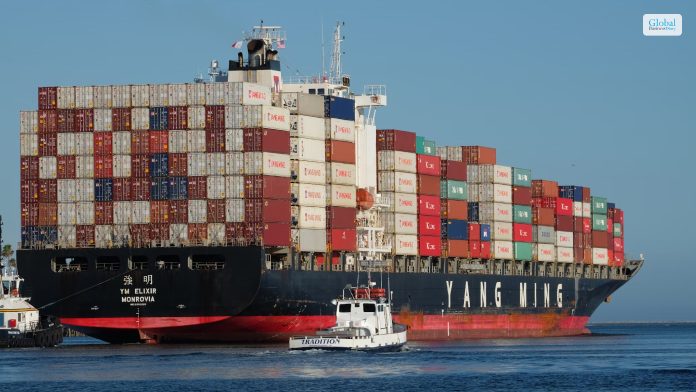Cost Insurance Freight? Everything You Should Know About It

Cost insurance freight is also known as the international shipping agreement. You need to be well aware of it before you use this service. It represents the charges that a seller needs to pay to cover the costs, insurance, and freight of buyer’s order. These types of expenses sellers need to pay at the time of transit.
Most of the time, the goods are exported from the buyer’s port to the desired destination. You need to be well aware of the facts that can assist you in attaining your goals. Once the goods are loaded in the vessel, the liability of the goods transfers from seller to buyer.
The term CIF used in sea and waterway shipments all the time. You must be well aware of it while attaining your requirements with ease. CIF can ensure a smooth distribution channel.
What Is Cost Insurance Freight?

Cost, Insurance, and Freight (CIF) is a trade term used in international shipping and commerce. It specifically outlines the responsibilities and costs associated with transporting goods from the seller to the buyer. It is applicable for all the shipments that occur through the waterways. You must remember this point from your end.
Responsibilities Of Seller For Cost Insurance Freight
There are several responsibilities for the cost insurance freight that you must be well aware of. You cannot negate your responsibilities in this regard. Some of the core points that you must address here are as follows:-
- For the product, the seller needs to purchase the export license.
- You need to deliver the inspection of the products.
- Any kinds of charges at the time of shipping and loading the goods in the port will be given by the seller.
- A seller needs to meet the packaging cost of the cargo.
- The seller will give customs clearance and duties for taxes.
- Shipping costs of the freight will be given by the seller.
- Sellers need to take responsibility for the insurance of the goods unless the product reaches the buyer’s port of destination.
- You need to cover the damage and destruction of the goods at the time of shipment.
Responsibilities Of Buyer
Along with the seller, the buyer also needs to follow certain responsibilities to keep the goods in perfect shape. You cannot ease off your responsibilities in this regard. Some of the core responsibilities of the buyer are as follows:-
- You need to unload the product at the port terminal.
- The buyer needs to transport the product between the delivery site and the terminal.
- All the customs duty charges are essential for importing the goods.
- You need to meet the charges for transporting, delivering, and unloading the goods for the final destination.
Importance Of Cost Insurance Freight
There are several important cost insurance freights that you must be well aware of. You should know the facts that can assist you in reaching your goals with complete ease. Some of the key factors that you must take care of here are as follows:-
1. Clear Allocation Of Responsibilities
CIF terms clearly outline the responsibilities of the buyer and seller in the shipping process. This clarity helps both parties understand who is responsible for costs, insurance, and transportation at each stage of the shipment. You need to have a clear idea about the responsibilities that you have to shoulder at your end.
2. Risk Management On Cost Insurance Freight
CIF includes insurance coverage for the goods during transit. This mitigates risk of loss or damage to goods while they are being transported from the seller to the buyer. During transit, risk management can help you reduce the chances of your cost to a great extent. Once you follow the correct process, things can become easier for you in the long run. Follow the right process from your end.
3. Reduced Uncertainty For Cost Insurance Freight
With CIF terms, both parties have a clear understanding of the total cost involved in the transaction. It includes the cost of the goods, insurance, and freight. This reduces uncertainty and potential disputes regarding additional expenses or responsibilities. Cost Insurance freight can reduce the possibility of uncertainties to a great extent. You need to be well aware of it at your counterpart. It reduces the marginal cost to a great extent.
4. Smoother Customs Clearance
By clearly defining the responsibilities up to the port of destination, CIF terms can facilitate smoother customs clearance processes. The buyer knows when their responsibility for the goods begins, which helps in planning and preparation for customs procedures. It will reduce the burden of extra charges on the seller. Ultimately, it can distribute the cost evenly in the process of your transit.
5. Global Trade Facilitation
CIF terms facilitate global trade by providing a standardized framework for international transactions. They offer a common understanding of shipping responsibilities, making it easier for businesses from different countries to engage in trade. International trade has some rules and regulations. The cost insurance and freight will help you to meet up with these rules and regulations with complete ease.
6. Protection For Buyers & Sellers
CIF terms offer protection to both the buyer and the seller. Sellers ensure that the goods are safe and insured until they reach the agreed-upon port. While buyers need assurance of receiving the goods as agreed upon. It offers complete protection to the buyers and sellers at the time of transit of the consignment. You should be well aware of it. It helps to counter supply chain risk management issues with ease.
Final Take Away
Hence, if you want to make the process of your shipment smooth, then you must follow the guidelines of CIF. You must know the importance of the Cost Insurance freight can make things simpler for you in getting your goals with ease.
Share your experience with us while attaining your goals with complete ease. Try out the best options in this regard. Ensure that you follow the correct process from your end while attaining your goals with clarity.
CIF terms play a crucial role in international trade by providing clarity, risk mitigation, and a standardized framework for shipping goods across borders. They contribute to smoother transactions, reduced uncertainties, and better risk management.
Explore More Business Related News By Clicking Below!!













